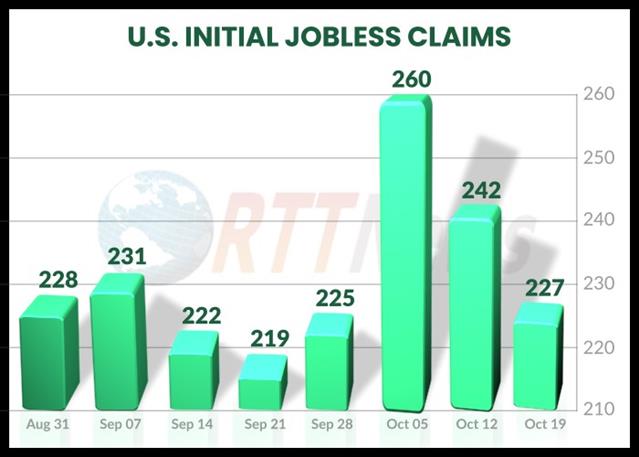Asian Markets Trade Mostly Lower
Asian stock markets are trading mostly lower on Tuesday, following the mixed cues from Wall Street overnight, as bond yields surged on cooling expectations on US Fed interest rate cuts. Traders also b...

Asian stock markets are trading mostly lower on Tuesday, following the mixed cues from Wall Street overnight, as bond yields surged on cooling expectations on US Fed interest rate cuts. Traders also booked some profits after the recent up surge in the markets. The uncertainty over wars in the Middle East and Europe as well as the U.S. presidential election is weighing on market sentiment. Asian markets closed mixed on Monday.
After the Fed slashed interest rates by 50 basis points last month, CME Group’s FedWatch Tool is currently indicating an 87.0 chance of just a 25 basis point rate cut next month. Dallas Fed President Lorie Logan said that she supported gradual rate cuts to help manage the risks and accomplish the goals.
Reversing the gains in the previous session, the Australian stock market is trading sharply lower on Tuesday, following the mixed cues from Wall Street overnight. The benchmark S&P/ASX 200 is falling well below the 8,300 level, with weakness across most sectors led by energy and technology stocks. Gold miner stocks were the only bright spot.
The benchmark S&P/ASX 200 Index is losing 114.00 points or 1.37 percent to 8,230.40, after hitting a low of 8,215.10 earlier. The broader All Ordinaries Index is down 109.20 points or 1.27 percent to 8,494.90. Australian stocks closed notably higher on Monday.
Among the major miners, BHP Group is losing almost 1 percent and Mineral Resources is slipping almost 5 percent, while Rio Tinto and Fortescue Metals are declining more than 1 percent each.
Oil stocks are mostly lower. Origin Energy is losing almost 2 percent each, while Woodside Energy and Santos are down almost 1 percent each. Beach energy is edging up 0.4 percent.
Among tech stocks, Zip is losing more than 2 percent, WiseTech Global is declining almost 3 percent, Afterpay owner Block is edging down 0.5 percent, Xero is down more than 1 percent and Appen is slipping almost 2 percent.
Gold miners are mostly higher. Gold Road Resources and Resolute Mining are gaining almost 1 percent each, while Newmont and Northern Star resources are edging up 0.2 to 0.3 percent each. Evolution Mining is down almost 1 percent.
Among the big four banks, Commonwealth Bank, Westpac and National Australia Bank are losing more than 1 percent each, while ANZ Banking is declining almost 1 percent.
In other news, shares in Audinate Group sank more than 9 percent after the software maker warned it will not meet its full-year gross profit target, saying “headwinds” are expected to continue into Q2.
In the currency market, the Aussie dollar is trading at $0.667 on Tuesday.
The Japanese stock market is sharply lower on Tuesday, adding to the slight losses in the previous session, with the Nikkei 225 falling to a tad below the 38,400 level, following the mixed cues from Wall Street overnight, with weakness across most sectors led by index heavyweights and technology stocks.
The benchmark Nikkei 225 Index closed the morning session at 38,399.47, down 555.13 points or 1.43 percent, after hitting a low of 38,200.82 earlier. Japanese shares ended slightly lower on Monday.
Market heavyweight SoftBank Group is losing almost 2 percent and Uniqlo operator Fast Retailing is declining more than 2 percent. Among automakers, Honda is losing almost 1 percent, while Toyota is edging up 0.3 percent.
In the tech space, Advantest is losing almost 2 percent, Screen Holdings is declining 1.5 percent and Tokyo Electron is slipping more than 2 percent.
In the banking sector, Mitsubishi UFJ Financial, Sumitomo Mitsui Financial and Mizuho Financial are losing more than 1 percent each.
The major exporters are mostly lower. Mitsubishi Electric is losing more than 2 percent, Panasonic is declining more than 1 percent and Sony is down almost 1 percent, while Canon is edging up 0.3 percent.
Among the other major losers, M3 is losing more than 4 percent and Ebara is slipping almost 4 percent, while Ryohin Keikaku and Toto are slipping more than 3 percent each. Minebea Mitsumi, Mercari, Tokyo Tatemono, Socionext, Mitsubishi Electric, Renesas Electronics and Keisei Electric Railway are declining almost 3 percent each.
Conversely, there are no other major gainers.
In the currency market, the U.S. dollar is trading in the higher 150 yen-range on Tuesday.
Elsewhere in Asia, South Korea is down 1.0 percent, while New Zealand, Singapore, Taiwan and Indonesia are lower by between 0.1 and 0.6 percent each. China, Hong Kong and Malaysia are higher by between 0.1 and 0.5 percent each.
On Wall Street, stocks turned in a mixed performance during trading on Monday following recent strength on Wall Street. While the Dow showed a notable pullback, the tech-heavy Nasdaq managed to end the day in positive territory.
The Dow slid 344.31 points or 0.8 percent to 42,931.60 and the S&P 500 dipped 10.69 points or 0.2 percent to 5,853.98, but the Nasdaq rose 50.45 points or 0.3 percent to 18,540.01.
Meanwhile, the major European markets have all moved to the downside on the day. While the U.K.’s FTSE 100 Index fell by 0.5 percent, the German DAX Index and the French CAC 40 Index both slumped by 1.0 percent.
Crude oil prices moved higher on Monday on possible disruptions in supplies due to escalating tensions in the Middle East. West Texas Intermediate Crude oil futures for November ended up by $1.34 or 1.94 percent at $70.56 a barrel.
- Check out our free forex signals
- Follow the top economic events on FX Leaders economic calendar
- Trade better, discover more Forex Trading Strategies
- Open a FREE Trading Account


